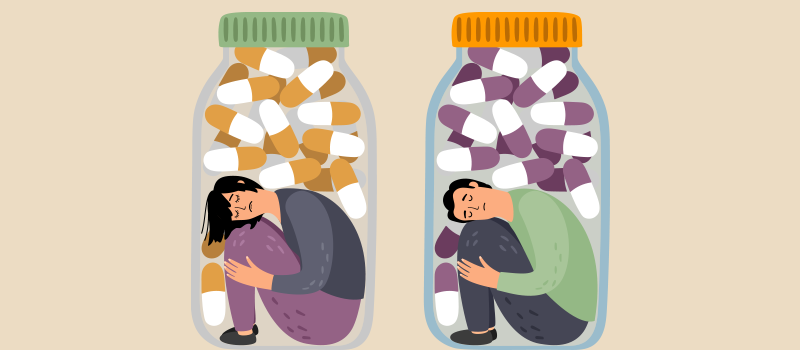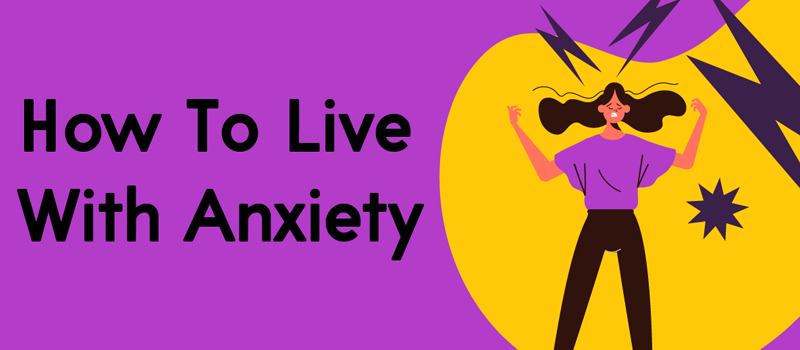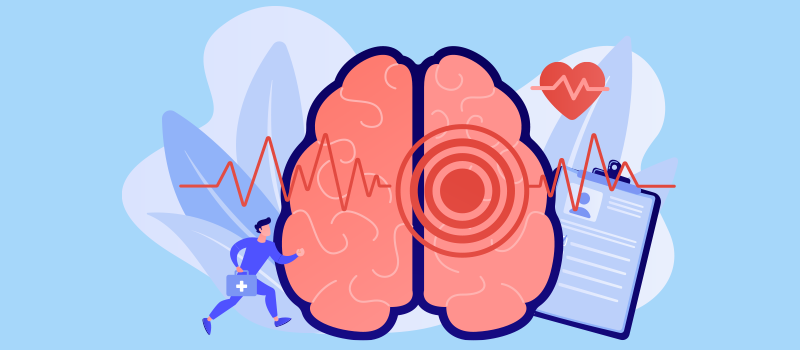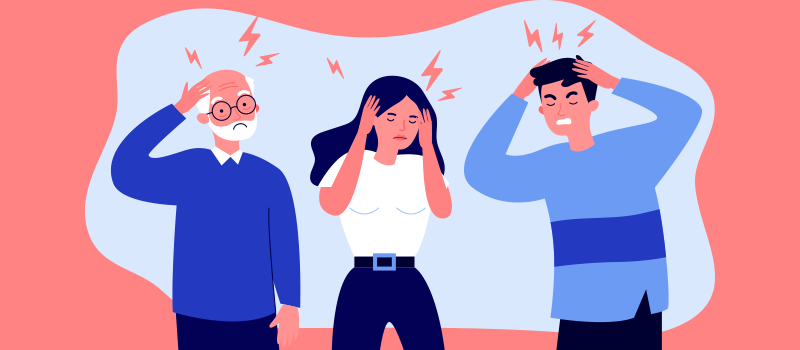What’s the Buzz
The Bee Healthy Blog
9 Medications That Need to be Tapered Slowly

Generally, if you are prescribed a 10-day course of antibiotics for a UTI, your doctor will remind you to continue the entire treatment course even if you feel better. Once you finish taking the 10 days worth of antibiotics, you don’t have to do anything else, granted that your infection is resolved. In this case, you can stop the antibiotics immediately after the last medication dose. However, certain medications need to be tapered slowly. Tapering is the process that requires a gradual reduction of higher doses to lower doses and then stopping the drug altogether. Depending on the type of medication, abrupt discontinuation can result in various health consequences ranging from mild, bothersome side effects to severe symptoms requiring medical care. As a result, you can experience withdrawal symptoms, including high blood pressure, fast heartbeat, anxiety, nausea, vomiting, headache, and dizziness. Depression, somnolence (excessive sleepiness), heart attack, and seizures could potentially occur in severe cases.
Please continue reading to learn about some of the medications that need a gradual dose reduction to prevent withdrawal effects.
What are medication withdrawal symptoms?
Medication withdrawal symptoms are disabling and potentially serious symptoms that can occur without an appropriate medication taper, i.e., when you reduce the dose of medication very rapidly or suddenly stop taking the medication cold turkey.
Regarding medication withdrawal, opioid medications and psychotropic medications such as antidepressants and antianxiety may be the first thing that comes to your mind; however, other medications and drug classes can cause severe withdrawal symptoms as well without proper tapering. Examples include certain blood pressure medications, antidepressants, and corticosteroids.
For example, suddenly stopping a beta blocker medication used to treat hypertension can result in a spike in blood pressure and heart rate; it can also cause chest pain and anxiety. If used for short-term pain treatment, abruptly stopping opioids can lead to withdrawal effects with symptoms such as diarrhea, generalized malaise, body pain, and anxiety. Topamax withdrawal can result in worsening seizures. Similarly, stopping antidepressants suddenly can lead to exacerbating depression symptoms. Some over-the-counter medications, such as proton pump inhibitors used to treat heartburn, can also cause withdrawal effects with abrupt discontinuation, leading to the worsening of acid reflux.
Why does medication withdrawal occur?
When you have been on a specific medication for a long time, your body becomes used to the drug. For instance, if you take a corticosteroid like prednisone for more than a couple of weeks, the adrenal glands reduce cortisol production since the medication provides the body with synthetic cortisol. If you stop taking the drug or reduce the dose too quickly, it can lead to adverse effects called withdrawal symptoms. Some of these are serious adverse events that can have long-term effects on your mental and physical health. Depending on the medications, the symptoms can begin within hours to days of reducing the dose or stopping the medicine. Withdrawal is more likely to happen if you have taken the medication for a long time, especially at higher doses.
Generally, the medication’s current dose is gradually reduced over a period of time. The tapering regimen is patient-specific, depending on the type of medication, the duration of therapy, and the patient’s overall health. For example, clonidine, a blood pressure medication, can be tapered over 3 days, whereas tapering tricyclic antidepressants can take weeks to months, especially if you have been taking it for months to years. Your health care team will give you specific instructions and further information about how to taper a medication safely so that you don’t feel unwell. In other words, they can develop a tapering plan to lower your dose over an appropriate duration gradually. Your doctor will let you know when you can ultimately stop taking the medicine once it is successfully tapered to the lowest dose.
Which medications can make you experience withdrawal symptoms?
Here are some medications that can cause withdrawal effects if you reduce the dose too quickly or stop taking medicine cold turkey.
Certain blood pressure and heart medications
Conditions treated by these medicines: High blood pressure, chest pain, heart rhythm abnormalities, tremors, and migraine prevention.
Examples: Beta-blockers like propranolol (Inderal), calcium channel blockers like amlodipine (Norvasc), angiotensin receptor blockers like losartan (Cozaar), alpha agonists like clonidine (Catapres), and diuretics or water pills like spironolactone (Aldactone).
Possible withdrawal effects: Dangerous increase in blood pressure, fast heartbeat, chest pain, myocardial infarction (heart attack), and anxiety.
Antidepressants
Conditions treated: Depression, anxiety, panic disorders, eating disorders, obsessive-compulsive disorder, post-traumatic stress disorder, and social anxiety disorder.
Examples: Selective serotonin reuptake inhibitors (SSRIs) like paroxetine (Paxil) and serotonin-norepinephrine reuptake inhibitors (SNRIs) like venlafaxine (Effexor).
Possible withdrawal symptoms: Flu-like symptoms, headaches, dizziness, lethargy, nausea, rebound insomnia, tingling or electric shock-like sensations, anxiety, confusion, irritability, and nightmares or vivid dreams.
Benzodiazepines
Conditions treated: Anxiety, panic attacks, insomnia, seizures, alcohol use disorder.
Examples: Alprazolam (Xanax), diazepam (Valium), and lorazepam (Ativan).
Possible withdrawal symptoms: Headache, palpitations, sweating, nausea, diarrhea, tremors, nightmares, agitation, delusions, hallucinations, confusion, memory problems, panic attacks, anxiety, and seizures.
Antiepileptics
Conditions treated: Epilepsy, migraine prevention, weight loss, alcohol use disorder.
Examples: Topiramate (Topamax, Trokendi XR, Qudexy XR, in Qsymia).
Symptoms of Topamax withdrawal: New or worsening seizures.
Anticonvulsants
Conditions treated: Seizures, nerve pain, alcohol use disorder.
Examples: Gabapentin (Neurontin, Horizant, Gralise)
Symptoms of gabapentin withdrawal: Return of seizures, worsening seizures, trouble sleeping, tiredness, headache, dizziness, light sensitivity, sweating, nausea, pain, irregular heartbeat, anxiety, agitation, irritability, and restlessness.
Corticosteroids
Conditions treated: Allergies, skin conditions, arthritis, kidney conditions, certain cancers, and many more.
Examples: Prednisone (Deltasone, Sterapred) and others.
Symptoms of steroid withdrawal: Nausea, vomiting, diarrhea, abdominal pain, loss of appetite, lightheadedness, severe fatigue, weakness, body aches, joint pain, mood swings, and irritability.
Opioid pain medications
Conditions treated: Moderate to severe pain.
Examples: Morphine (MS Contin), oxycodone (OxyContin, Roxicodone).
Symptoms of rapid opioid tapering: Sweating, pain, diarrhea, anxiety, and restlessness can occur if you suddenly stop opioid use.
Muscle relaxants
Conditions treated: Muscle spasticity related to multiple sclerosis, spinal cord injury, and other spinal conditions.
Examples: Baclofen (Lioresal, Gablofen, Ozobax)
Symptoms of a rapid medication taper: Worsening muscle spasms, weakness, fever, nausea. More severe symptoms like hallucinations and seizures can occur on withdrawal from injectable forms of the drug.
Proton pump inhibitors (PPIs)
Conditions treated: Heartburn, acid reflux.
Examples: Omeprazole (Prilosec), esomeprazole (Nexium), lansoprazole (Prevacid), and others.
Withdrawal symptoms after long-term use: Rebound hyperacidity, acid reflux, heartburn, regurgitation.
How long does it take to complete a medication taper?
The amount of time it takes for a medication to be successfully tapered can vary, depending on your current dose, how long you have taken the medication, your age (older adults need to taper more slowly), the type of medications, and their half-life. As a result, tapering takes two to three days, whereas it could take weeks to months to taper. Therefore, for some people, withdrawal symptoms subsided after a few days, whereas others may take 2-3 weeks. Keep in mind that there is always an exception; if a medication is causing toxicity or severe health risks, stopping the medication immediately would be warranted. On the other hand, if you get health complications or worsening withdrawal symptoms during dose reduction, your doctor may decide to taper it over a longer duration.
Your health care team will tell you how to complete a medication taper safely. In general, healthcare providers recommend reducing or stopping one medication at a time so that they can check for any adverse effects after a medicine has been stopped.
Frequently asked questions
What is it called when you slowly reduce medication?
It is called a medication taper when you slowly reduce medication over a period of time. Tapering gives your mind and body time to adjust to being without the medicine.
When should you taper off medication?
You should taper off medication if your healthcare provider decides it is beneficial for you to start a new drug and if the current medicines require tapering. Your doctor or pharmacist will let you know if any medications need tapering.
Why do SSRIs need to be tapered?
SSRIs (selective serotonin reuptake inhibitors), among other antidepressants, must be tapered by patients who have taken them for longer than six weeks. It takes a minimum of four weeks for a patient to taper off from antidepressant treatment. If these medications are stopped suddenly or reduced rapidly, they can cause withdrawal symptoms, including relapse or worsening depression.
Do you have to taper off losartan?
Losartan (brand name Cozaar) is in a drug class called angiotensin II receptor antagonists. It is prescribed to treat high blood pressure and heart failure. If losartan is stopped abruptly, it can rapidly increase blood pressure, increasing your risk of heart attack or stroke. If you are taking losartan and want to stop, talk to your doctor about how to properly taper and avoid withdrawal symptoms.
References:












SOCIAL